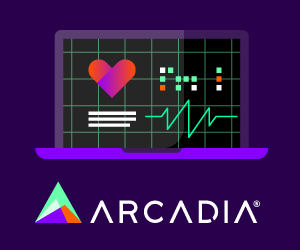

As the healthcare industry continues to evolve, medical labs are finding themselves in a unique position. Historically one of the most under-recognized medical specialties, labs are now an essential part of the healthcare equation. According to the Centers for Disease Control and Prevention (CDC), 14 billion lab tests are ordered annually, with 70% of medical decisions dependent on their findings. As such, labs have become the tissue connecting physicians with the information they need to provide quality care.
But healthcare professionals aren’t the only ones ordering lab tests these days. The age of healthcare consumerism is changing the way patients access medical services. This is especially true when it comes to medical testing. Patients who now want more control over their care are taking the initiative and ordering medical tests for themselves.
As more patients request direct-to-consumer (DTC) lab tests, medical laboratories will need to reconfigure and upgrade key aspects of their business in order to serve these new healthcare consumers properly. No longer a pure business-to-business endeavor, labs are now finding themselves in the consumer market. Labs that want to grow and thrive as the paradigm shifts will need to plan accordingly.
The Rise of Patient Consumerism
Patient-consumerism is a movement designed to make the delivery of healthcare services more efficient and cost-effective. As more patients adopt a self-service healthcare mentality, the popularity of direct-to-consumer lab testing is expected to continue to grow exponentially. Labs that don’t have a plan for addressing this new market will more than likely miss out on a giant opportunity.
LigoLab for instance is one such provider of enterprise-level software solutions (LIS, RCM, DTC) for pathology and reference laboratories. The 16-year-old company offers a direct-to-consumer web platform called TestDirectly, which serves a network made up of laboratories, specimen collection centers, urgent care facilities, and outpatient clinics located throughout the U.S. This network has collected, processed, and reported well over twenty million Covid-19 tests since the pandemic first started in the spring of 2020. Although the portal was originally intended and still used as a tool to draw labs and patients closer together for all forms of diagnostic testing and preventative screenings, as one might expect, the vast majority of the testing has been for Covid-19 over the past two-plus years.
It appears as though LigoLab has tapped into something big with its TestDirectly web portal. It is estimated that the global market for direct-to-consumer lab services will double in the next few years, growing from $1.4 billion in 2020 to $2.4 billion by 2025. Labs that want to enter this growing market will need to utilize platforms like TestDirectly in order to scale efficiently and provide patients with the enhanced experience they now expect as online consumers.
Setting the Stage for Direct-To-Consumer Lab Testing
An aging population, shifting political climate, and an increase in self-pay are a few of the many recent events that have laid the foundation for the rise of specialized lab services. With the digital transformation of nearly everything, patients have new expectations in terms of healthcare delivery. They now rightfully expect more transparency and a bigger stake in the decisions regarding their care.
Direct-to-consumer laboratory services are akin to over-the-counter medications offered at pharmacies. They are diagnostic tests that patients request without a physician’s order. They shouldn’t be confused with over-the-counter lab tests, however. Unlike over-the-counter lab tests, direct-to-consumer lab services are provided by specialized labs and well-trained lab professionals, with results securely sent directly to the patients themselves upon the completion of the lab report.
Direct-to-consumer testing comes with two big advantages. First, it removes insurance companies and physician orders from the equation. As such, test results are usually provided much more quickly. Secondly, patients get access to their test results directly. This is especially important for patients that are testing for health issues and want that to be kept private.
Removing the Middleman
It should be noted, however, that patients will likely need help understanding their test results. Laboratories can play a significant role in facilitating this process as well.
One potential downside for patients with direct-to-consumer testing is that payment is usually required at the time of service. But this is a huge positive for lab managers. It eliminates denials and removes payers from the approval process. This is also a positive for patients that don’t wish to deal with their health insurance.
For labs, compensation is often highly dependent on insurance companies and other payers, and these payers regularly use a host of reasons to deny payment. Payers also dictate the types of tests that patients can and cannot get through coverage. Ultimately, this makes it very difficult for lab managers to keep their organizations financially healthy. Even worse, it makes it extremely hard for patients to get good and timely care. Direct-to-consumer lab testing helps resolve these issues by taking the middleman out of the equation.
Labs Must Evolve or Face Becoming Obsolete
Despite all the positives, some labs are still hesitant to offer direct-to-consumer options via their testing menus.
However, there are providers and policymakers who are against direct-to-consumer lab tests. Many are concerned with consumers and their ability to make sound decisions based on their test results. But opening more certified labs to direct-to-consumer testing will put these fears to rest by meeting regulatory requirements and employing qualified individuals that can help answer consumer questions related to their test results.
Regardless of how lab managers feel about the issue, direct-to-consumer testing is a growing trend that isn’t going away any time soon. If labs don’t act now, they may soon find that they’ve become obsolete and replaced by a more agile and patient-friendly alternative.
Those forward-thinking labs that do evolve will benefit from additional revenue streams and new ways to care for their patients. By offering what patients really want, their customer base and market recognition will grow significantly, opening up even more service opportunities like telehealth and therapeutics personalized to the individual patient.
Photo: georgeclerk, Getty Images


















